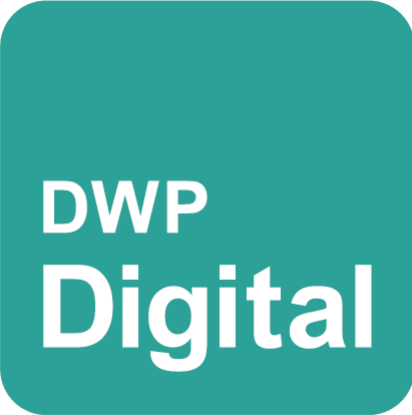
Better use of data underpins everything we want to achieve in DWP Digital. Our work enables DWP to make better informed decisions, based on how timely and situationally aware we can be, to help shape DWP policy and operational delivery. Making a real impact on millions of people’s lives.
The COVID-19 pandemic demonstrated the need for several departments to urgently collaborate and have access to the right data and insights at the right time. This was particularly important for cross-cutting work such as the shielding programme or the COVID-19 vaccination programme during the pandemic, and now the same is true for our efforts in supporting the labour market and its continued recovery.
The Labour Market Data Trust
The Labour Market Data Trust pilot is building on the work of the Open Data Institute (ODI) on Data Trusts and the Alan Turing Institute’s work on Data Safe Havens. This has enabled us to explore improved data accessibility between the four government departments closest to everyday Labour Market activity, namely the Department for Work and Pensions (DWP), the Department for Education (DfE), the Department for Business, Energy and Industrial Strategy (BEIS) and Her Majesty’s Revenue and Customs (HMRC).
DWP is committed to maximising employment across the country to aid the economic recovery. It’s also the case that other government departments need granular insights into everyday labour market developments, especially those affecting local areas, specific sectors and disadvantaged groups. For example, the Department for Education’s National Skills Fund or the Department for Business, Energy and Industrial Strategy’s work supporting the Government’s Plan for Growth by creating the right business environment for a stronger, greener and more resilient economy across the UK.
Based on the need to collaborate on shared outcomes, we are actively exploring whether thematic data trusts can help government as a way of sharing pertinent and timely data to enable better outcomes.
The Labour Market Data Trust pilot is being financed through HM Treasury’s Shared Outcomes Fund, which incentivises departments to work collaboratively across departmental boundaries and challenging policy areas.
We’ve used the term ‘Data Trust’ to broadly mean a trusted framework for digital collaboration. The nine-month pilot focuses on understanding and testing the feasibility of meeting the respective labour market data needs of different departments using the Data Trust concept. This means proving the legal, digital and data protection framework necessary of a collective engagement. It aims to help departments to proportionately share their data, while rigorously protecting the privacy of those whose data it is.
It will also make sure that government bodies, as well as providing services to the public, learn from what the data is showing, to improve public services and respond earlier to dynamic changes in the labour market.
Joining up on what we need to know

Connecting and making better use of government’s different pockets of labour market data is vital to informing and improving citizen outcomes, iterating policies based on wider evaluation and, ultimately, delivering the best value for taxpayers’ money.
Currently data sharing arrangements between departments are lengthy to put in place or amend, and resource intensive. Government analysts and service delivery teams seeking data are unable to easily understand what data is held by others or confidently navigate their governance processes. As a result, the value of public sector data is being underexploited.
To be effective, a data trust requires the data to be accessible and discoverable, and the onward extraction of any results need to be monitored and governed. That means asking new technical, procedural and legal questions of our data to see whether a data trust can help to deliver greater collaboration or what changes would be needed.
In line with Mission 1 of the National Data Strategy, we want to move away from batch-file data sharing and towards in-place data shares, whereby data is shared from a single source and reused many times without unnecessary copying.
This approach avoids creating new data warehouses and drives up data quality across government by having a single source of truth. We are testing this concept over the course of the pilot when assessing data from other government departments and when drawing on their existing internal data catalogues. This is enabling us to test what improves discoverability and interoperability of data.
The security controls for any platform will align to industry best practice and include specific department requirements. All designs and processes across the project have been developed in line with our ‘privacy by design’ principle and informed by the National Cyber Security Centre’s cloud security principles.
Next steps

This work is important to find smarter ways to support economic recovery, levelling up and longstanding productivity challenges, all while directly helping some of the most vulnerable and disadvantaged groups in society.
The pilot will continue until the end of DWP’s financial year in March, when it will be fully evaluated to find out how it can help DWP, HMRC, DfE and BEIS work better going forward. My team is also working closely with HMT, the Office for National Statistics (ONS) and the Central Digital and Data Office (CDDO) within Cabinet Office on how to carry forward the learnings and expand the legacy of the pilot beyond just the labour market challenge.
DWP Digital have a huge mission to ensure that everyone can access DWP services when they need to, whether it's claiming benefit, getting help finding a job or understanding their State Pension.
Paul will be talking at the Big Data & AI World Conference on 3 March where He'll discuss how DWP are connecting data to support Citizen Life Journeys through the Social Welfare system.
If you want to read more about the DWP Digital Data Practice, visit our Careers site.

2 comments
Comment by Amer Music posted on
Great vision and the right thing to do! The devil is, undoubtedly, in the details - the choice of technology to underpin such an undertaking and delivery partner(s). Looking forward to learning more about those choices.
Good luck and godspeed Paul!
Comment by Simon Dennis posted on
Paul,
This is an initiative very close to my heart and I was delighted to learn more about your vision which aligns very strongly with our direction of travel in support of users across many industries as they ensure that robust foundations underpin business transformation and that innovation is enabled and encouraged.
Empowering data curation and sharing in a manner that goes beyond the facilitation of experimental data science to encourage and strengthen human collaboration and hence break down the cultural and organisational silos that have been built over decades of instiututional development is a most worthy ambition.
Where others on this path have often met with obstacles and setbacks, I get a sense that the time is now right for this initiative and I believe you have struck the right chord with this vision to bring this elusive ideal into reach. Of course we must hope that Westminster aligns policy to the way in which Whitehall now develops the delivery mechanisms to achieve these optimal outcomes for citizens.
My observation in the wider sense is that the work emanating from DLUHC seems the most effective so far seen at establishing cross-departmental collaboration that is supported by ministers stradling multiple Secretaries of State to provide outcome-focused leadership that is effective and will deliver change at pace.
After all it would remain somewhat rich for criticism to be levelled at our Perm Secs for silo-based protectionism whilst the Cabinet structure itself remains organised along historical lines of the Secretariat.
Good luck and our support is wholeheartedly pledged.